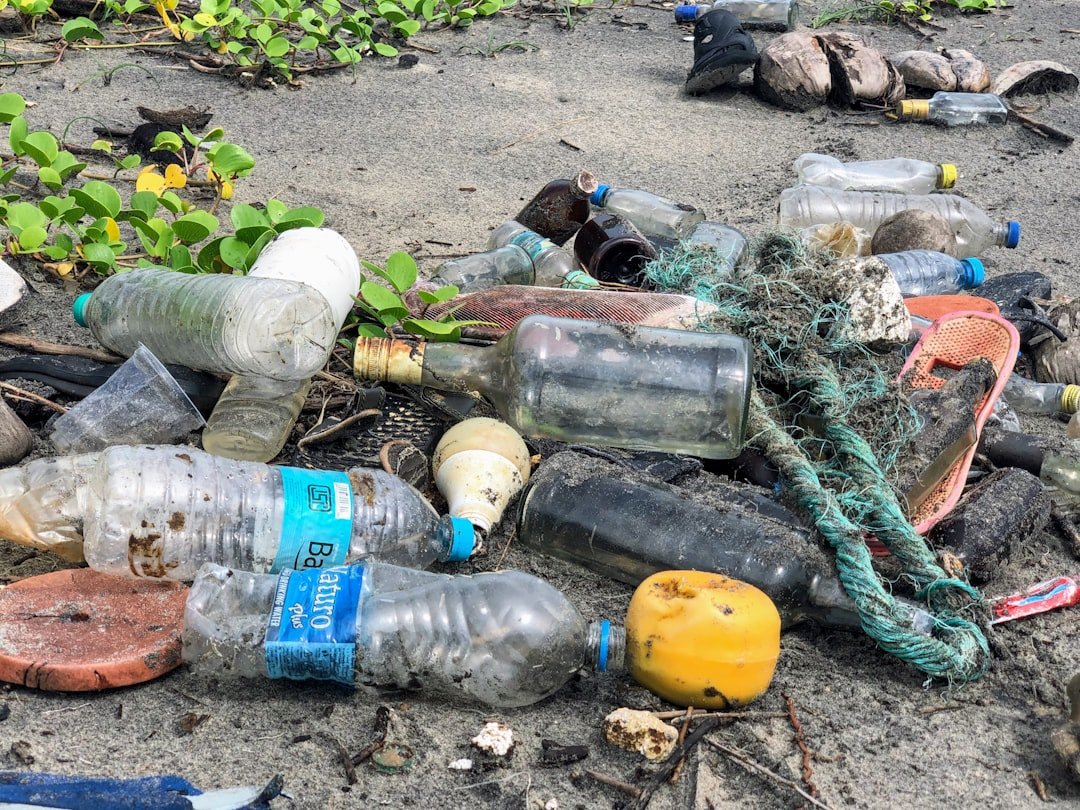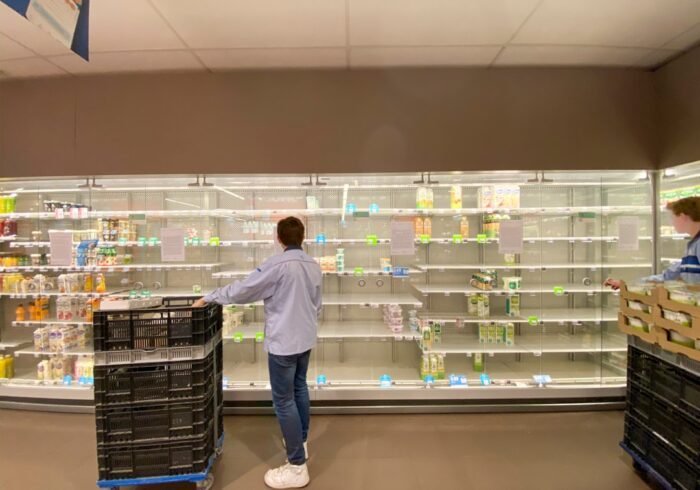Cargill Deforestation: A Comprehensive Study For many years, Cargill, one of the biggest privately held companies in the US, has played a major role in the world agricultural market. Cargill has an impact all over the world thanks to its operations in a number of industries, such as food production, animal nutrition, and grain trading. Nonetheless, its actions have come under intense criticism, especially with regard to deforestation. The company’s involvement in deforestation is mostly caused by its vast supply chains, which mainly contribute to the removal of forests for farming, especially in Southeast Asia and the Amazon rainforest.
Key Takeaways
- Cargill’s deforestation practices have significant environmental and social impacts.
- Cargill’s response to deforestation concerns has been criticized by environmental and social advocacy groups.
- Government and NGO involvement is crucial in addressing Cargill’s deforestation practices.
- Cargill’s deforestation has a global market impact, affecting supply chains and consumer perception.
- Sustainable solutions are needed to address Cargill’s deforestation practices and ensure a better future outlook.
The deforestation problem associated with Cargill raises concerns about sustainability and corporate responsibility in addition to the environment. The strain on forests increases as the world’s demand for goods like palm oil and soy keeps growing. Cargill’s part in this dynamic has generated discussions among consumers, legislators, and environmentalists.
Comprehending the ramifications of Cargill’s deforestation activities is essential to understanding environmental degradation in its larger context and its socioeconomic effects. Cargill’s deforestation operations have significant and varied environmental repercussions. Numerous species, many of which are already endangered, lose their habitat as a result of deforestation. The Amazon rainforest, sometimes known as the “lungs of the Earth,” is essential for sequestering carbon.
In addition to reducing this essential carbon storage capacity, the removal of trees accelerates climate change by releasing stored carbon into the atmosphere. Whole ecosystems can be upended by the loss of biodiversity brought on by habitat destruction, which can have a domino effect on both plants and animals. Deforestation also exacerbates erosion and soil deterioration. When trees are cut down, the soil becomes unstable & more prone to erosion from water & wind.
| Metrics | Data |
|---|---|
| Deforestation Area | 10,000 hectares |
| Carbon Emissions | 100,000 tons |
| Species at Risk | Over 200 |
| Community Displacement | 5,000 people |
Short-term gains from clearing land can turn into long-term losses due to this degradation, which can eventually result in decreased agricultural productivity. Also, water cycles are upset; trees are essential to preserving local hydrology because they facilitate rainfall & control water flow. Beyond the local area, these environmental changes have an impact on global weather patterns and exacerbate climate instability. Concerningly, Cargill’s deforestation practices have social repercussions. As land is cleared for agriculture, indigenous communities that depend on forests for their livelihoods risk resource loss and displacement.
Deforestation poses a threat to the way of life of these communities, many of whom have strong cultural ties to their ancestral lands. Land rights disputes resulting from agricultural encroachment can exacerbate social tensions and threaten local governance systems. Economically speaking, deforestation can result in long-term economic instability even though it may boost agricultural output in the short term. An economy that depends too much on monoculture crops may be more susceptible to market swings and natural disasters brought on by climate change.
Also, as ecosystems deteriorate, the services they offer—like pollination, clean water, and climate regulation—decrease, increasing costs for communities that have to look for other solutions. The paradox of economic expansion at the price of environmental well-being emphasizes the necessity of a more sustainable agricultural strategy. Cargill has committed to reducing its environmental impact in a number of ways in response to mounting concerns about its involvement in deforestation. With an emphasis on important commodities like soy & palm oil, the company has committed to removing deforestation from its supply chains by 2030.
Investing in traceability systems that enable improved supply chain monitoring and collaborating with farmers to advance sustainable farming methods are two examples of this commitment. NGOs & local communities are among the stakeholders Cargill has worked with to create strategies that strike a balance between environmental preservation & agricultural productivity. Cargill hopes to improve its corporate social responsibility image and allay the justifiable worries expressed by environmentalists by working with sustainability-focused organizations. Critics counter that in order to guarantee real progress, these pledges must be supported by tangible deeds and quantifiable results. In tackling the problem of deforestation connected to companies like Cargill, governments and non-governmental organizations (NGOs) are essential.
Numerous nations have put laws into place to discourage illicit logging and encourage sustainable land use. Businesses are frequently required by these laws to follow stringent environmental guidelines & disclose information about their supply chains. Holding companies responsible for their actions and increasing awareness of the effects of deforestation have been made possible in large part by NGOs. Organizations like the World Wildlife Fund (WWF) and Greenpeace have pushed Cargill & other businesses to embrace more sustainable practices through campaigns & advocacy initiatives.
Innovative solutions that help local communities and the environment can result from government, non-profit, and corporate collaboration. But in many areas where deforestation is widespread, it is still difficult to enforce regulations effectively. Changes in the supply chain and market volatility. When environmental degradation or regulatory changes intended to stop such practices disrupt supply chains, deforestation can cause market volatility to rise.
Changing Market Demand and Consumer Behavior. In addition, consumers are becoming more conscious of sustainability. Businesses that ignore deforestation risk losing market share as more consumers place a higher value on eco-friendly products. Businesses like Cargill may need to modify their business models in response to this change in consumer behavior, which could increase market demand for products sourced sustainably. The significance of agriculture that is sustainable. The relationship between market forces and business practices emphasizes how crucial sustainable agriculture is to maintaining long-term financial stability.
Prioritizing sustainable solutions is necessary to address the issues raised by deforestation connected to Cargill’s operations. By incorporating trees into agricultural landscapes, agroforestry techniques can preserve productivity while promoting biodiversity. Farmers can build resilient ecosystems that are less vulnerable to pests and diseases by encouraging polyculture systems as opposed to monocultures. Also, identifying areas suitable for agriculture without compromising forested regions can be facilitated by investing in technology for improved land-use planning. By minimizing waste and their negative effects on the environment, precision agriculture techniques can maximize the use of available resources.
Also, empowering local communities with knowledge and resources for sustainable farming can enable them to embrace environmentally friendly practices while maintaining financial stability. Working together, stakeholders—including governments, non-governmental organizations, businesses, & local communities—can create comprehensive plans that successfully combat deforestation. It is feasible to develop a more balanced approach to agriculture that benefits both people and the environment by encouraging collaborations that put sustainability ahead of immediate profits. Deforestation associated with Cargill’s operations is a complicated problem that needs immediate attention from all facets of society.
The efficacy of the company’s sustainability pledges will rely on their open execution and accountability systems. As environmental concerns continue to gain attention on a global scale, customers will put more pressure on businesses to act responsibly. In the future, changing market conditions, legal frameworks, & public expectations will probably influence Cargill’s deforestation policies. The movement toward sustainable agriculture is more than just a fad; it is a fundamental change in perspective that acknowledges the relationship between economic activity & environmental health. A more sustainable future that lessens the effects of deforestation & promotes economic growth may be possible by adopting creative solutions and encouraging cooperation among stakeholders.
Conclusively, tackling Cargill’s involvement in deforestation is not solely about preserving forests; it’s also about guaranteeing a sustainable future for ecosystems and communities. All stakeholders must be dedicated to the future; governments & non-governmental organizations must collaborate to establish an atmosphere that supports sustainable practices, and corporations must accept accountability for their deeds. The only way to make significant progress in stopping the deforestation trend & creating a healthier planet for future generations is to work together.



